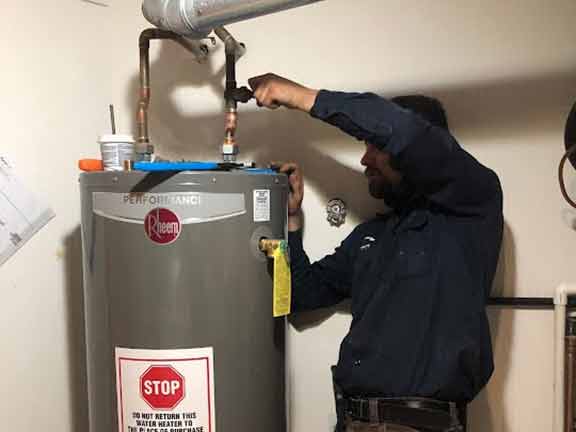
Installing a water heater can be a complex process that requires careful planning and execution. Whether you are replacing an old unit or installing a brand new water heater, there are several common mistakes that homeowners often make during the installation process. Below we will discuss these mistakes and provide expert insights and recommendations to help you avoid them.
Importance of Proper Water Heater Installation
Before diving into the common mistakes, it is crucial to understand why proper water heater installation is important. A properly installed water heater ensures efficient and reliable operation, reduces the risk of malfunctions and accidents, and can even prolong the lifespan of the unit. By following the correct installation guidelines, you can optimize your water heater’s performance and minimize the need for repairs in the future.
Expert Insights and Recommendations
Neglecting to Properly Size the Water Heater
One of the most common mistakes during water heater installation is selecting the wrong size for your needs. Many homeowners make the mistake of choosing a water heater that is either too small or too large for their household. This can lead to inefficient operation and even higher energy bills.
To avoid this mistake, it is essential to consider the size and occupancy of your household when selecting a water heater. Speak with a professional or refer to the manufacturer’s guidelines to determine the appropriate size for your specific needs. Taking into account factors such as the number of occupants, peak hot water demand, and usage patterns can ensure that you choose a water heater that provides sufficient hot water without wasting energy or money.
Incorrect Placement and Venting
Another common mistake during water heater installation is improper placement and venting. Water heaters require adequate ventilation to ensure proper combustion and safe operation. Vent pipes should be correctly sized, properly sealed, and installed according to the manufacturer’s instructions.
Additionally, water heaters should be placed in an accessible area that allows for easy maintenance and repairs. Avoid installing the unit in a confined space or a location that is difficult to access. Proper clearance around the water heater is also crucial to prevent potential fire hazards and to ensure proper air circulation.
Failure to Install a Pressure Relief Valve
A pressure relief valve is a vital component of a water heater as it helps regulate the pressure inside the tank and prevents excessive buildup. Unfortunately, some homeowners neglect to install or properly maintain this essential safety feature.
During water heater installation, it is imperative to install a pressure relief valve and ensure it is in good working condition. Regular inspection and testing of the valve should be part of your maintenance routine to guarantee its proper functionality. This simple step can prevent the risk of a dangerous pressure buildup and potential damage to the water heater.
Improper Connection of Plumbing and Electrical Components
When installing a water heater, it is necessary to properly connect the plumbing and electrical components. This includes correctly attaching the inlet and outlet pipes, as well as the electrical connections.
Improper plumbing connections can result in leaks and water damage, while incorrect electrical connections can lead to electrical hazards or malfunctions. It is crucial to carefully follow the manufacturer’s instructions and ensure that all connections are secure and properly sealed. If you are unsure about the correct installation process, it is advisable to seek assistance from a licensed plumber or electrician.
Failure to Flush the Tank
A common mistake that homeowners make during water heater installation is neglecting to flush the tank before initiating regular use. New water heaters often contain sediment and debris that can accumulate inside the tank during manufacturing and transportation.
Flushing the tank helps remove these impurities and ensures the longevity and efficiency of the water heater. Failure to flush the tank can lead to reduced performance, decreased energy efficiency, and potential damage to the heating elements. Therefore, it is crucial to follow the manufacturer’s instructions and flush the tank properly before using the water heater.
In Summary
Proper installation of a water heater is crucial for ensuring its optimal performance, efficiency, and longevity. By avoiding common installation mistakes such as improper sizing, incorrect placement and venting, failure to install a pressure relief valve, improper connection of plumbing and electrical components, and neglecting to flush the tank, homeowners can enjoy a reliable and efficient hot water supply while minimizing the risk of malfunctions and accidents.
If you are unsure about any aspect of water heater installation, it is always recommended to speak with a professional plumber or electrician. Their expertise and experience can help ensure a smooth and successful installation process, providing you with peace of mind and the benefits of a properly functioning water heater for years to come.
